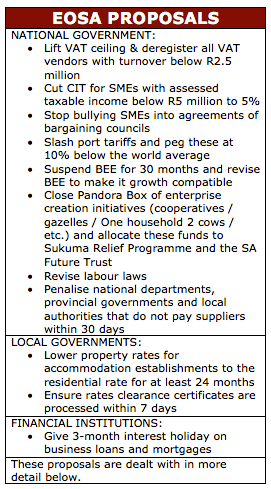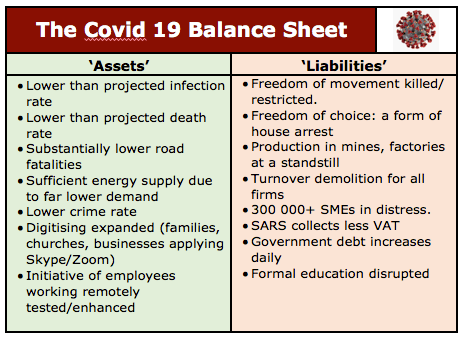Johannes Wessels
@johannesEOSA1
Two recent key government speeches gave rise to two important questions:
- Is the inability of the government to effectively implement its policies & plans (?) worse than its inability to table concrete action plans, underpinned by clear strategies, designs, milestones, budgets and target dates?
- Why can even Thabo Mbeki see the president is naked whilst organised big business still praises the beauty of his imaginary clothes?
The president’s tabling of the Economic Reconstruction and Recovery Plan (ERRP) was lame and lacked detail, whilst the Minister of Finance’s Medium Term Budget Policy Statement (MTBPS) left one with a feeling there is not much grasp within the collective government on how to prevent SA from slipping rapidly, if not tumbling, down the slope.
Instead of rekindling confidence and inspiration, vague and mixed messages fuelled doubt and a disbelief that the government can prevent SA from boarding the proverbial bus to Argentina (debt default). I put the following three arguments to illustrate this assessment:
- Will the government stand solidly behind Mboweni’s strategy of freezing public sector wages for three years when they cannot deal with the much easier route to stop financing the effectively bankrupt SAA? Recall also how Pravin Gordhan in 2018 (knowing well that Eskom was not only overstaffed, but the personnel besides overpaid) overruled the Eskom Board and management when they had decided on a zero salary increase as part of addressing the Eskom viability issue.
- Can one rely (trust would be too much to ask) on the government’s undertaking to reign in public expenditure? This, when they had failed multiple times to table a comprehensive plan on how to deal with Eskom’s debt and the growing debt burdens of other State-owned Enterprises (SOEs).
- How is the “growth through infrastructure roll-out” approach different from numerous previous attempts – since the days of Thabo Mbeki – to strengthen the country’s economic fibre by infrastructure investments announcements, with the emphasis on announcements?
Flipchart notes or a detailed plan?
The Enterprise Observatory of SA reckons four fundamental problems underpin the ERRP and the MTBPS:
Continue reading “Ramaphosa’s bold plan (2): weak on detail, strong on flights of fancy”




